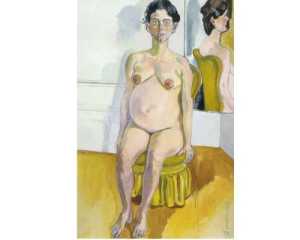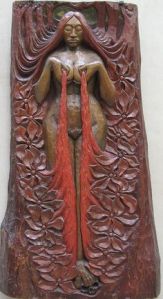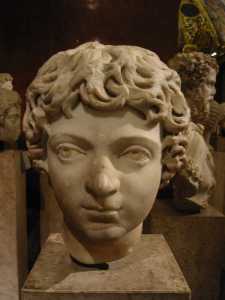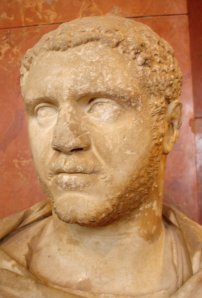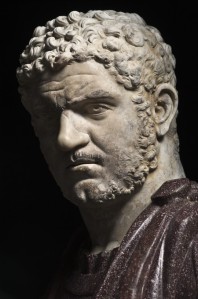
Giant Redwoods
(Statements in italics taken from Ethics, by Baruch de Spinoza)
Look farther and farther toward thin blue sky, until the green feathery tops of the trees are like the northern pole on some dream planet. Put the anger back in its bottle. These trees are generous. Hatred can never be good.
Your carsickness from the ride up the mountain begins to fade, leaving behind a breathless, weepy echo not unlike your first religious fervor. Hatred is increased through return of hatred, but may be destroyed by love.
When have you not been afraid? The random can be scrutinized for meaning, the puzzle solved, when surveyed long & carefully enough. Anything may be accidentally the cause of either hope or fear.
These trees have plenty of time. As a child, you stared at Jesus’ sad face for hours, wishing you could marry him — wondering what it was that made him love you. Could you sacrifice yourself for the sins of the world, if it was that simple & necessary? Cathedrals turn us small and vulnerable again, for reasons both blessed & cursed. Devotion is love towards an object which astonishes us.
Vague, starry eyes like yours feel at home here; the air is weighty, burdensome & solemn. You’ve loved trees before; this is different. These trees have plenty of time – more time than you. If we love a thing which is like ourselves, we endeavor as much as possible to make it love us in return.
Your nerves are suddenly frozen, by the unaccustomed richness of perfect light. Your guide is tall & slender, hesitant to speak. Her mother has the tattooed forearm of a Polish Jew of a certain age. The knowledge of good and evil is nothing but an idea of joy or sorrow. Sorrow is [a hu]man’s passage from a greater to a less perfection.
These trees have plenty of time. She touches your wrist, and for a moment, you, too, want to grow taller, leaving the surface of the earth behind forever. Shyly, she picks up a tiny pinecone, smaller than a toy. You both laugh when she tells you this is their seed. Joy is [a hu]man’s passage from a less to a greater perfection.
These trees have plenty of time. And all around, their wise, fallen, hollow bodies litter the ground like the bones of saints. Childlike, you understand a wish to die here, never to leave this hush. They’re only trees – your neck bent back as far as it will go; only trees, yet wondering if the giants can hear your thoughts. Love is joy, with the accompanying idea of an external cause. Love and desire may be excessive. When the mind imagines its own weakness, it necessarily sorrows.
Is there anything we have less power over than our own tongues? These trees have plenty of time, growing wise as the Buddha, in their silence.

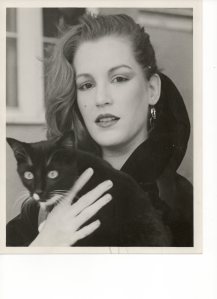
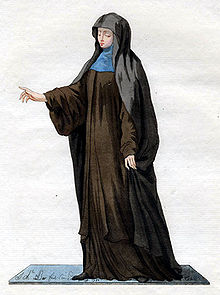
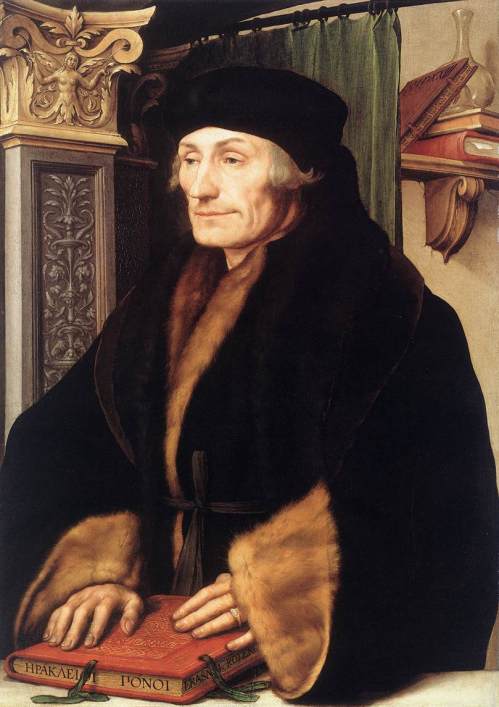

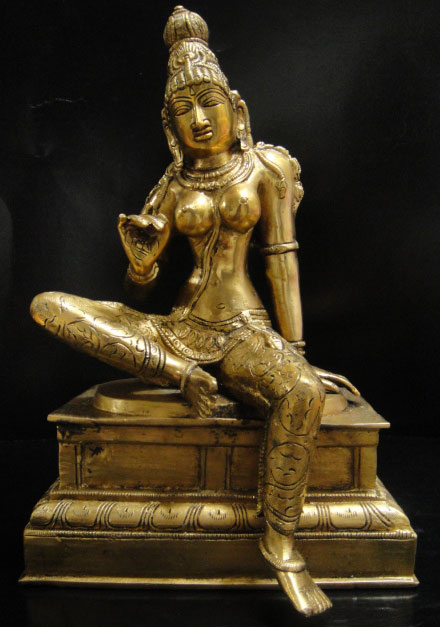
 I felt I was Gloria, some angel living in her own hallucination of time. We were angels on LSD, on LPS. I was cheesecake, chocolate-dribbled, sexy & asexual, pop-rocks eye candy. Wrapped in a wealthy, yet tragic, past. DEEP BREATH. With my dreamy tones; those slow, hypnotic lyrics, my subliminal heavenly chorus of all that is female, the goddess inside us. Hypnotic, larger than life.
I felt I was Gloria, some angel living in her own hallucination of time. We were angels on LSD, on LPS. I was cheesecake, chocolate-dribbled, sexy & asexual, pop-rocks eye candy. Wrapped in a wealthy, yet tragic, past. DEEP BREATH. With my dreamy tones; those slow, hypnotic lyrics, my subliminal heavenly chorus of all that is female, the goddess inside us. Hypnotic, larger than life.